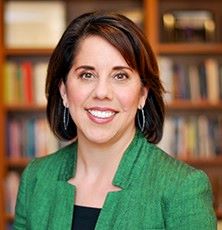
Lorelle L. Espinosa serves as program director at the Alfred P. Sloan Foundation, where she is responsible for developing and implementing evidence-based strategic priorities for the Foundation’s grantmaking to effectively advance diversity, equity, and inclusion (DEI) in STEM higher education. Her portfolio includes oversight of the Foundation’s MPhD program, which supports eight University Centers of Exemplary Mentoring (UCEMs) nationwide. UCEMs provide fellowships, peer and faculty mentoring, and networking and professional development resources aimed at helping graduate students from underrepresented groups successfully complete graduate study in STEM fields. Espinosa also oversees the Sloan Indigenous Graduate Partnership, a Sloan initiative that partners with eight U.S. campuses to help meet the specific needs of American Indian and Alaska Native students, enabling them to pursue advanced degrees in STEM while continuing to participate meaningfully in tribal life.
Prior to joining the Foundation in 2020, Espinosa was Vice President for Research at the American Council for Education. In this role, she was responsible for building the organization’s research portfolio with special emphasis on diversity, equity, and inclusion; for promoting innovation and data use to close equity gaps; and for helping shape the national conversation around issues of access to and success in higher education for diverse populations. Espinosa began her career in student affairs and undergraduate education at the University of California, Davis, Stanford University, and the Massachusetts Institute of Technology.
With more than 20 years of experience in higher education practice, policy, and research, Espinosa is a national voice on issues pertaining to college access and success for diverse populations and on the role of equity-minded leadership in postsecondary settings. She is the lead author of Race, Class & College Access: Achieving Diversity in a Shifting Legal Landscape, an influential study of how recent legal jurisprudence is changing race-conscious policies in education and was PI of the national study, Race and Ethnicity in Higher Education. Espinosa served as committee co-chair of the National Academies of Sciences, Engineering, and Medicine study that produced the report, Minority Serving Institutions: America's Underutilized Resource for Strengthening the STEM Workforce, and has spent much of her career focused on DEI in STEM higher education with an early emphasis on women of color in these fields.
Espinosa has contributed opinion and scholarly works to peer-reviewed journals, academic volumes, and industry magazines, including the Harvard Educational Review, Research in Higher Education, the Chronicle of Higher Education, Inside Higher Ed, Diverse Issues in Higher Education, and CNN.com. She has held leadership roles in the Association for the Study of Higher Education and the American Educational Research Association and is a research affiliate of the University of Southern California’s Pullias Center for Higher Education.
A Pell Grant recipient and first-generation college graduate, Espinosa earned her Ph.D. in higher education and organizational change from the University of California, Los Angeles; her bachelor of arts from the University of California, Davis; and her associate of arts from Santa Barbara City College.
 Shannon Gundy is Assistant Vice President of Enrollment Management at the University of Maryland in College Park, Maryland where she began as an Admission Counselor in 1990. She currently oversees freshman and transfer recruitment, admission and enrollment; marketing and strategic communications for Enrollment Management, the University Visitor Center, Passionate about helping students to navigate the college admission process, she has served in a variety of capacities in Maryland's admission office.
Shannon Gundy is Assistant Vice President of Enrollment Management at the University of Maryland in College Park, Maryland where she began as an Admission Counselor in 1990. She currently oversees freshman and transfer recruitment, admission and enrollment; marketing and strategic communications for Enrollment Management, the University Visitor Center, Passionate about helping students to navigate the college admission process, she has served in a variety of capacities in Maryland's admission office.
A graduate of Howard University in Washington, D.C., she began her career in college admissions as an Admission Counselor at College of Notre Dame of Maryland. In addition to her role in Enrollment Management, Shannon also serves as a member of the International Baccalaureate College and University Task Force, the Maryland/Delaware/District of Columbia ACT Council, and the College Board Access and Diversity Collaborative Advisory Committee. She is also a faculty member for the AACRAO (American Association of Collegiate Registrars and Admission Officers) Admissions Counselor-Recruiter professional development course.
Committed to issues of access in college admission, Shannon is particularly interested in serving traditionally underrepresented students as they work to pursue higher education. She, like Nelson Mandela, believes that "Education is the most powerful weapon which you can use to change the world."